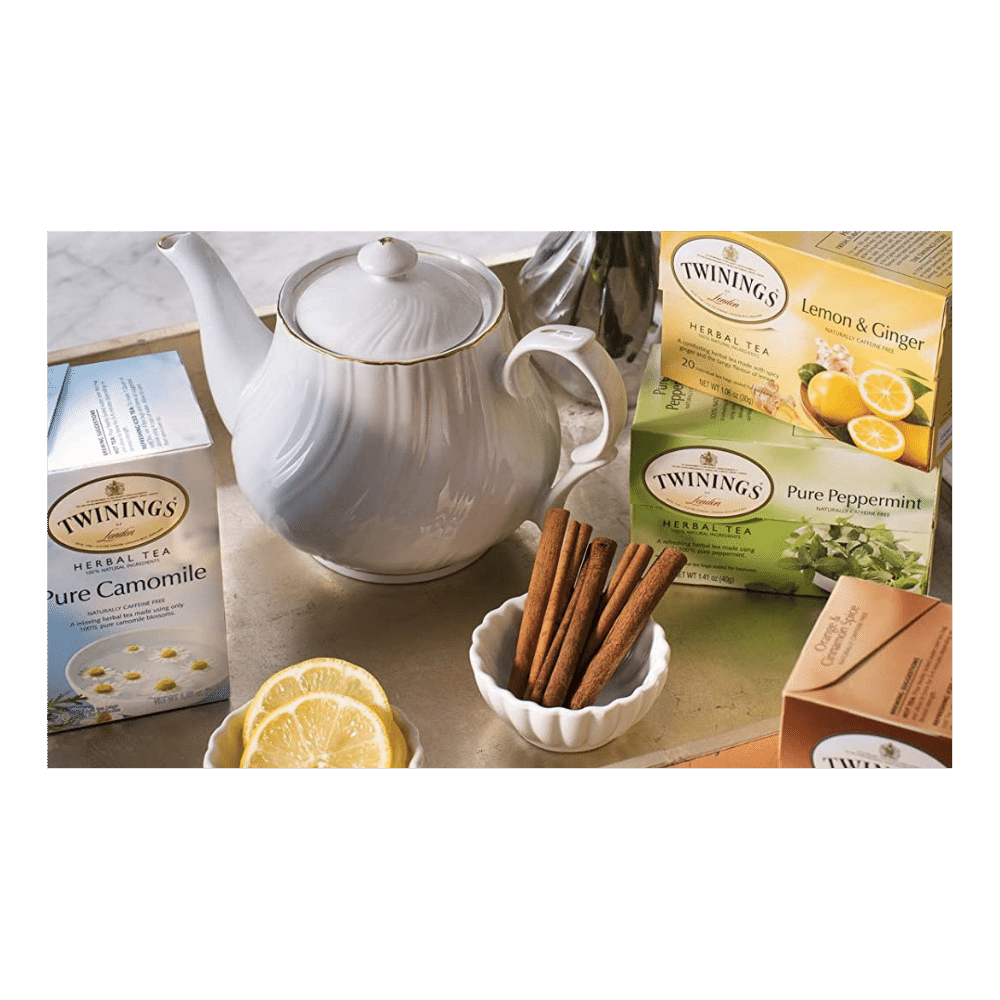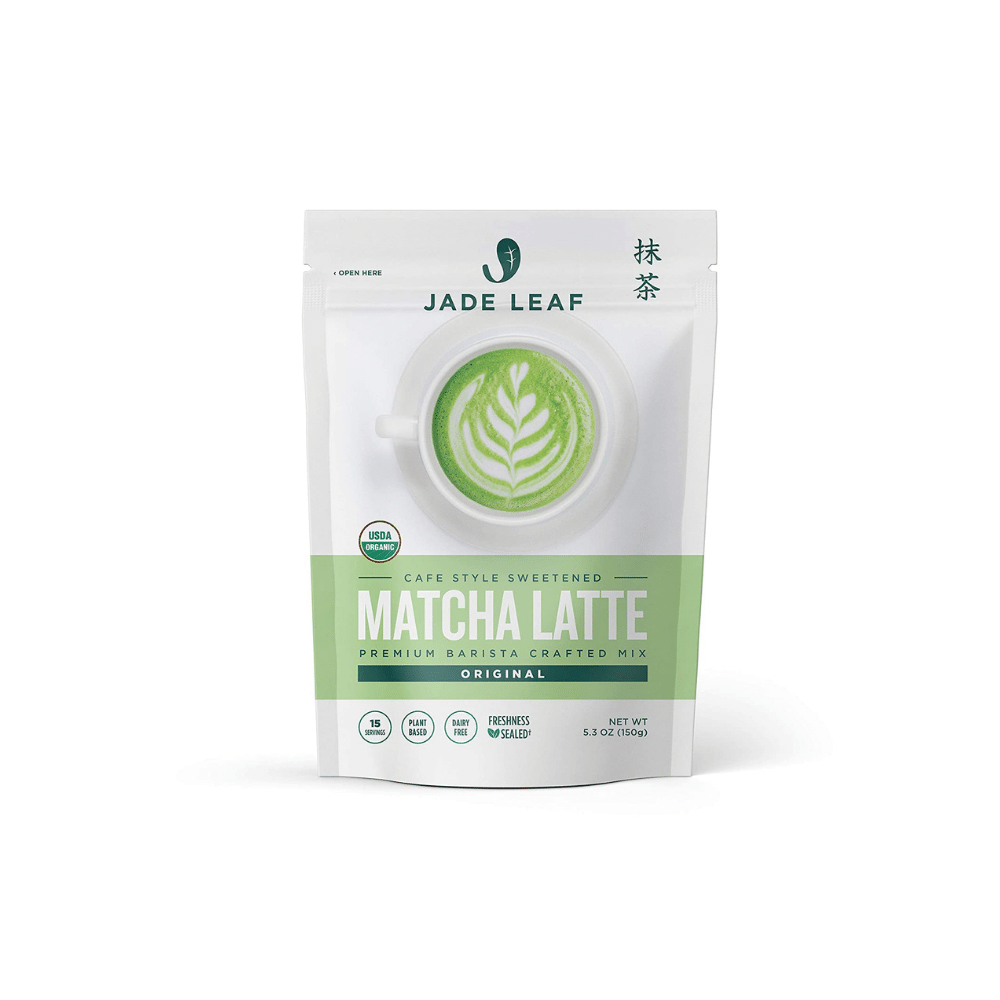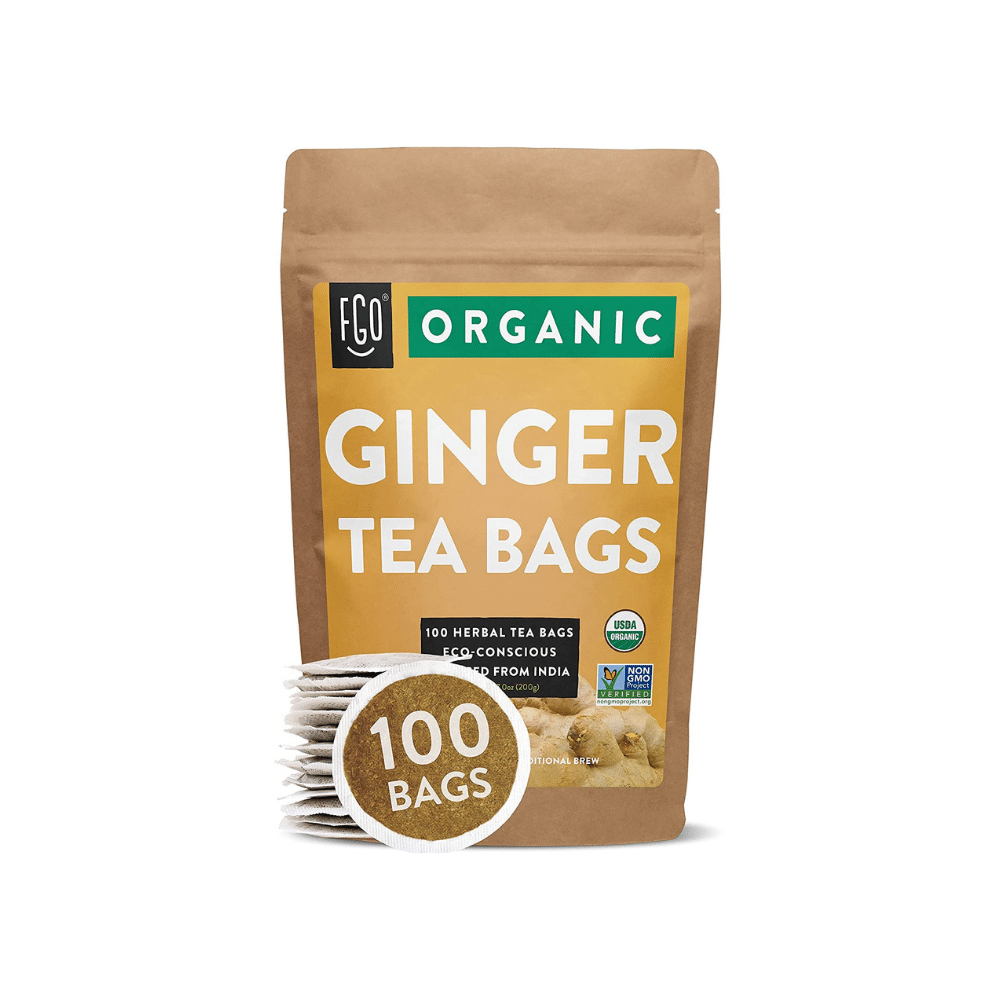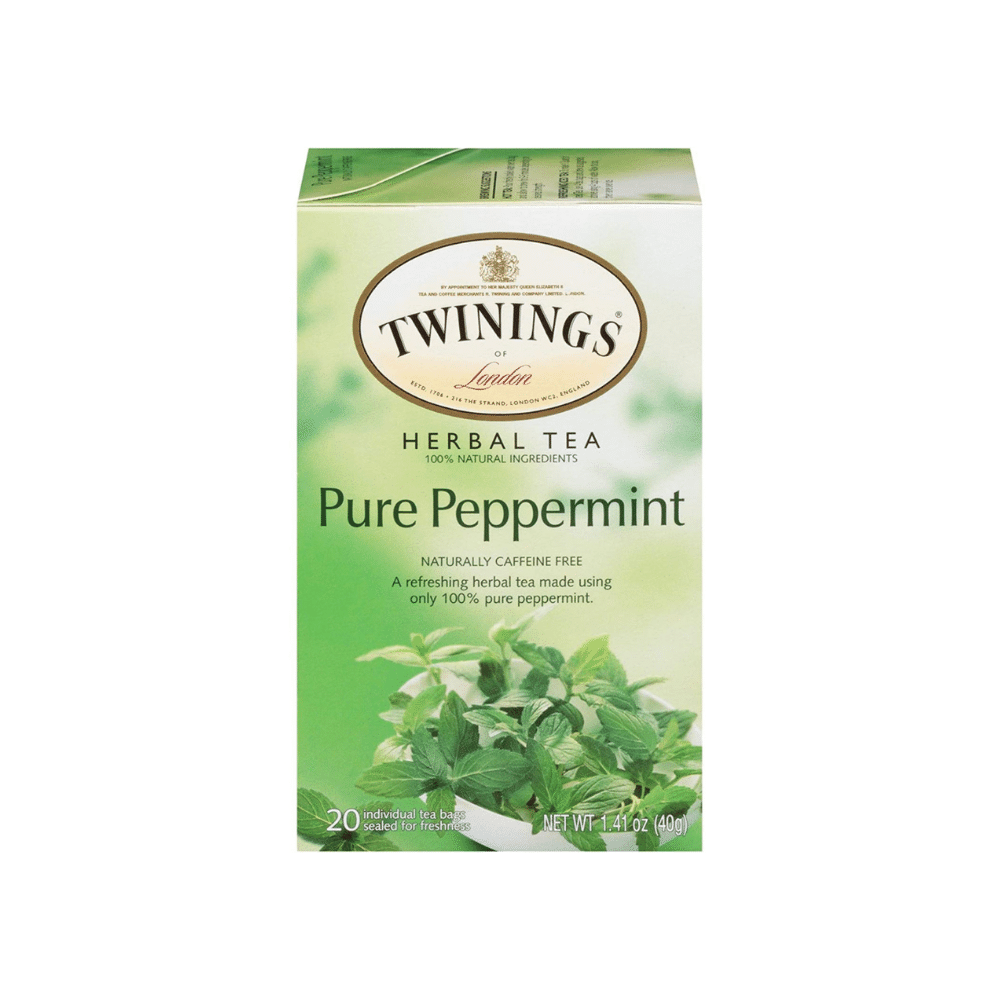Best Tea for Immune System and Fight Off Colds
Tea help boosts the immune system with its powerful antioxidant and flavonoid compounds. Find out about its awesome health benefits.

Drinking a cup of tea is certainly relaxing and soothing when you're sick, but there is some evidence suggesting that drinking tea regularly may help you stay ahead of the curve by helping prevent colds and flu.
Your body is always fighting oxidative damage, however, aging, bad eating habits, and smoking may take a toll on the immune system. With time, these free radicals damage your cells, making them inefficient, thus increasing your risk for chronic disease, and premature aging.
We’ll cover how tea has powerful antioxidants, and the best teas to drink for immune support that is also backed by research.
How We Identify Quality Tea
Whether you're new to tea or have enjoyed drinking it for years, it's important to be able to recognize high-quality loose leaf teas. You don't need to rely on just your taste buds to become a tea expert. Here's what to keep in mind when buying tea.
Sight: High-quality loose tea leaves should look like tea leaves. Avoid loose leaf teas that look crumbly or appear to contain a lot of stems and woody pieces, as they will be less flavorful and more complex.
Touch: High-quality dried tea leaves are smooth, whole, and sturdy. If your tea has a lightweight feel to it, it may be too dried out or old. Loose leaf tea should not crumble or disintegrates when handled gently.
Smell: High-quality teas will have a distinct aroma and flavor. If you inhale deeply and get only trace amounts of scent from the tea, this could be a signal that the tea is low-quality or getting old and stale Green tea should smell grassy, light, and refreshing, while black tea should have an earthy, floral and sweeter scent.
Taste: Great tea has a strong, recognizable taste. Take your time sipping your tea, allowing the tea to flow over different parts of your mouth. You should be able to notice different flavors and mouthfeel. Green tea has a smoother, brighter, and fresher taste than black tea. Regardless of which type of tea you're drinking, good tea will activate different flavors on your tongue as you sip.
Here are the 5 best teas to support your immune function
- Best for Overall Health: Green Tea.
- Best for Gut Health: Ginger Tea.
- Best for Lung Health: Turmeric Tea.
- Best for Sickness: Peppermint Tea.
- Best at Bedtime: Chamomile Tea.
Green tea is made from the same tea plant that produces black tea. Unlike other types of teas, green tea is either steam- or pan-fired soon after harvesting to halt the oxidation process, which preserves the deep green color, and the freshness of the tea leaves increases their antioxidant effects.
Green tea has an exceptional amount of flavonoids that can improve heart health by lowering bad cholesterol and reducing the risk of blood clots. The Catechins in Green tea is effective at warding off the flu and the cold.
Matcha is a kind of green tea that is popular in Japan but has gained popularity worldwide. Matcha green tea differs from regular green tea because it is grown under shade for several weeks before harvesting. After that, the veins of the tea leaves and the stems are cut out, and the tea leaves get ground into a fine powder.
Matcha is known to be rich in antioxidants, especially catechins. Matcha contains certain types of catechins which may be up to 137 times greater in concentration compared to other green teas. Tea contains catechins which may help fight inflammation by fighting against free radical damage. Keeping this cell damage to a minimum can help reduce your risk of developing chronic diseases.
Matcha is a powdered tea. You will consume all the nutrients contained within the entire tea leaf. Therefore, the amount of caffeine contained in a cup of matcha tea will be significantly higher than in regular green tea. With that being said, you will only require a small amount of matcha tea powder to reap its health benefits.
Matcha is my favorite tea because it is delicious and easy to prepare. You can add about a teaspoon to hot water or enjoy it as a chilled beverage. For a fancy twist, you can make a matcha latte by adding the powder to milk. You can add it to smoothies, pudding, muffins, or cakes.
Ginger has similar antimicrobial properties to turmeric, which can help to boost your immunity and keep you healthy. Ginger adds a slightly sweet, slightly spiced flavor to tea blends. It’s a popular ingredient in both caffeine and herbal teas.
It can help prevent morning sickness during pregnancy, can be used to treat chronic indigestion, and can help relieve joint pains caused by arthritis.
Turmeric is a yellowish-orange root that tastes similar to ginger. It is often used in Indian cuisine and is related to ginger. Curcumin has immune-supporting properties and can be used to ward off illness. It also helps to prevent cancer. Turmeric is used for its flavor in cooking, but the ground-up root can also be consumed as tea when added to water.
Curcumin is the most well-known compound in turmeric. It gives turmeric its signature bold color. Curcumin is thought to help regulate the growth of immune-related cells and cancer-causing cells, and reduce inflammation in the body, so it may be helpful for people with arthritis and other inflammatory conditions It has been shown to have antibacterial and antiviral properties, and it's typically used in some cultures to relieve cold and flu symptoms.
It has an earthy, pungent, and bitter taste, so you don't need a whole lot to prepare a tea. Add ½ teaspoon of ground turmeric to 2 cups of water, and bring the mixture to boiling point. After that, turn the heat down, and let it simmer for five to ten minutes. You can also add spices like ground cinnamon or a slice of lemon to give your tea an extra kick.
Another popular herbal tea is peppermint. It can be consumed on its' own or used as an ingredient in both caffeine and herbal teas. Peppermint is cool and refreshing – the perfect thing when you're feeling under the weather. Studies have shown that mint contains antimicrobial properties and antiviral compounds that can help ward off colds and flu, and it’s also high in antioxidants along with a variety of other health advantages.
It can also be used for soothing upset stomach, nausea, indigestions, or other gastrointestinal discomforts. Menthol and methyl salicylate, the main ingredients of peppermint, are known for calming anxiety, reducing pain, and preventing the growth of bacteria.
Chamomile has long been used as a component in herbal medicine to boost the immune system, ease symptoms of the common cold, and aid in rest and recovery. Recent studies indicate that chamomile has antibacterial properties that can ward off illness and keep your immune system in top shape.
Chamomile can go well on its own for a light, floral tea that goes well with sweetener. It’s also a common ingredient in a variety of herbal blends. It helps to relieve menstrual pain and muscle spasm, improve sleep and relaxation, and reduce stress.
Potential Health Benefits of Tea
For thousands of years, people from all over the world have enjoyed tea. It has been used as herbal medicine due to its strong antiviral, antibacterial, and antioxidant properties that boost immunity, anti-inflammatory properties, and even fight off cancer and heart disease!
Some teas are better for you than others, but there’s plenty of evidence that regularly drinking tea has a lasting impact on your overall wellness.

How Does Tea Effects Immune Function?
First of all, polyphenol antioxidants in tea support cellular health, which may help support healthy immune function.
EGCG, a catechin that occurs in all true teas but is most concentrated in white, green, and fermented teas, supports the balanced function of both the innate and adaptive immune systems.
Drinking a cup of tea can help your body defend against illness by boosting its immune system. Many types of tea contain antiviral, antimicrobial, antibacterial effects, and medicinal properties that can help to keep your body in top shape. Tea has been used by people for hundreds of years to ward off minor illnesses and ease the symptoms of colds, coughs, and sore throats.
Best Tea to Boost Your Immune System
We prefer polyphenol-containing tea over antioxidant compounds for immune support and general wellness.
Besides the refreshing and enjoyable nature, tea drinking is also a delicious way to get health-promoting antioxidants.
About natural antioxidants, teas naturally include a wide variety of beneficial properties, which is why they’ve been able to survive for thousands of years as a staple health practice
Adopting healthy lifestyle habits could help you avoid unexpected health issues. For example, doing something simple and natural every single day, being a tea drinker could help you avoid unexpected illnesses.
Tea for Immune System FAQs
Which tea has the highest antioxidants?
According to the ORAC, flor de Jamaica, which means "flower of Jamaica," has the highest antioxidant content out of all teas. When brewed, this tea has 400% more antioxidants than black tea and 100% fewer antioxidants than green tea.
Does drinking tea helps boost the immune system?
Studies have shown that various types of tea may help protect against certain diseases, including cancer and heart disease. Some teas provide more health benefits than others, but there's plenty of evidence showing that regularly drinking tea can improve your overall well-being.
What makes the immune system strong?
You can make several changes to your lifestyle and diet today to improve your immunity. These include reducing your consumption of sugars, staying hydrated, exercising regularly, sleeping well, and managing your stress.
What are the signs of a weak immune system?
A weakened immune system includes frequent colds, infections, digestive problems, delayed wound healing, skin problems, fatigue, organ problems, delayed growth, blood disorders, and autoimmune diseases. The immune system protects the body from harmful pathogens, toxins, and other environmental risks.
Is green tea better than black tea?
Green tea has a greater antioxidant content than black tea. Black tea contains less caffeine than coffee. It hydrates the body, strengthens the immune system, and promotes blood flow to your brain.
.






